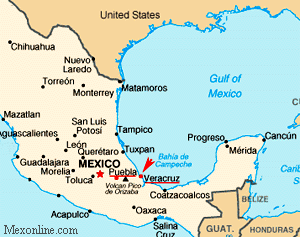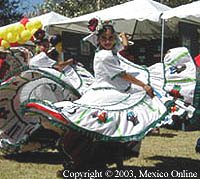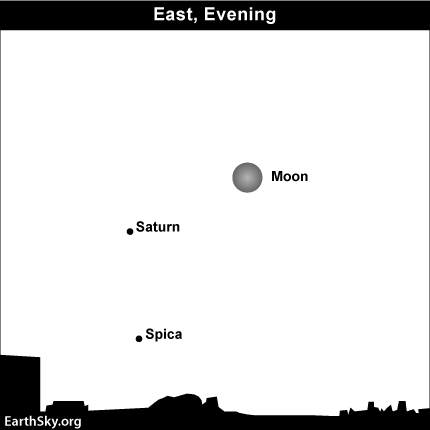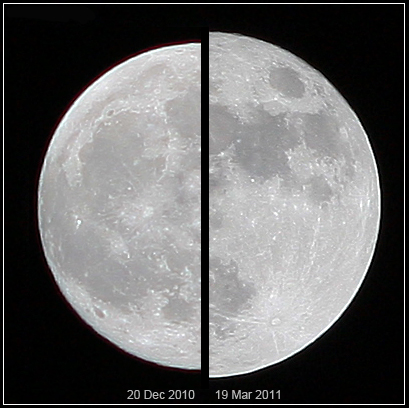The History of Cinco de Mayo
Introduction
The holiday of Cinco De Mayo, The 5th Of May, commemorates the victory of the Mexican militia over the French army at The Battle Of Puebla in 1862. It is primarily a regional holiday celebrated in the Mexican state capital city of Puebla and throughout the state of Puebla, with some limited recognition in other parts of Mexico, and especially in U.S. cities with a significant Mexican population. It is not, as many people think, Mexico's Independence Day, which is actually September 16.
Setting The Stage
The battle at Puebla in 1862 happened at a violent and chaotic time in Mexico's history. Mexico had finally gained independence from Spain in 1821 after a difficult and bloody struggle, and a number of internal political takeovers and wars, including the Mexican-American War (1846-1848) and the Mexican Civil War of 1858, had ruined the national economy.

Archduke Ferdinand Maximilian
During this period of struggle Mexico had accumulated heavy debts to several nations, including Spain, England and France, who were demanding repayment. Similar debt to the U.S. was previously settled after the Mexican-American War. France was eager to expand its empire at that time, and used the debt issue to move forward with goals of establishing its own leadership in Mexico. Realizing France's intent of empire expansion, Spain and England withdrew their support. When Mexico finally stopped making any loan payments, France took action on its own to install Napoleon III's relative, Archduke Maximilian of Austria, as ruler of Mexico.
Mexico Confronts The Invasion

Map showing Veracruz, site of the French invasion
France invaded at the gulf coast of Mexico along the state of Veracruz (see map) and began to march toward Mexico City, a distance today of less than 600 miles. Although American President Abraham Lincoln was sympathetic to Mexico's cause, and for which he is honored in Mexico, the U.S. was involved in its own Civil War at the time and was unable to provide any direct assistance.

Gen. Zaragoza
Marching on toward Mexico City, the French army encountered strong resistance near Puebla at the Mexican forts of Loreto and Guadalupe. Lead by Mexican General Ignacio Zaragoza Seguin, a smaller, poorly armed militia estimated at 4,500 men were able to stop and defeat a well outfitted French army of 6,500 soldiers, which stopped the invasion of the country. The victory was a glorious moment for Mexican patriots, which at the time helped to develop a needed sense of national unity, and is the cause for the historical date's celebration.
Unfortunately, the victory was short lived. Upon hearing the bad news, Napoleon III had found an excuse to send more troops overseas to try and invade Mexico again, even against the wishes of the French populace. 30,000 more troops and a full year later, the French were eventually able to depose the Mexican army, take over Mexico City and install Maximilian as the ruler of Mexico. Maximilian's rule of Mexico was also short lived, from 1864 to 1867. With the American Civil War now over, the U.S. began to provide more political and military assistance to Mexico to expel the French, after which Maximilian was executed by the Mexicans - his bullet riddled shirt is kept at the museum at Chapultepec Castle in Mexico City. So despite the eventual French invasion of Mexico City, Cinco de Mayo honors the bravery and victory of General Zaragoza's smaller, outnumbered militia at the Battle of Puebla in 1862.
Maximilian's rule of Mexico was also short lived, from 1864 to 1867. With the American Civil War now over, the U.S. began to provide more political and military assistance to Mexico to expel the French, after which Maximilian was executed by the Mexicans - his bullet riddled shirt is kept at the museum at Chapultepec Castle in Mexico City. So despite the eventual French invasion of Mexico City, Cinco de Mayo honors the bravery and victory of General Zaragoza's smaller, outnumbered militia at the Battle of Puebla in 1862.
Today's Celebration
For the most part, the holiday of Cinco de Mayo is more of a regional holiday in Mexico, celebrated most vigorously in the state of Puebla. There is some limited recognition of the holiday throughout the country with different levels of enthusiasm, but it's nothing like that found in Puebla. Celebrating Cinco de Mayo has become increasingly popular along the U.S.-Mexico border and in parts of the U.S. that have a high population of people with a Mexican heritage. In these areas the holiday is a celebration of Mexican culture, of food, music, beverage and customs unique to Mexico.
Celebrating Cinco de Mayo has become increasingly popular along the U.S.-Mexico border and in parts of the U.S. that have a high population of people with a Mexican heritage. In these areas the holiday is a celebration of Mexican culture, of food, music, beverage and customs unique to Mexico.
Commercial interests in the United States and Mexico have also had a hand in promoting the holiday, with products and services focused on Mexican food, beverages and festivities, with music playing a more visible role as well. Several cities throughout the U.S. hold parades and concerts during the week following up to May 5th, so that Cinco de Mayo has become a bigger holiday north of the border than it is to the south, and being adopted into the holiday calendar of more and more people every year
>

According to U.S. clocks, May 5, 2012 features the closest and largest full moon of this year. Calendars say May 6, by the way, for this same close full moon as seen from Europe, the Middle East, Africa and Asia. We astronomers call this sort of close full moon a perigee full moon. The word perigee describes the moon’s closest point to Earth for a given month. But last year, when the closest and largest full moon occurred on March 19, 2011, many used a term we’d never heard: supermoon. We’ve heard this term again at this 2012 close full moon. What does it mean exactly? And how special is the May 5, 2012 supermoon?

The supermoon of March 19, 2011 (right), compared to an average moon of December 20, 2010 (left). Will you be able to notice with your eye alone that tonight's full moon is bigger or brighter than usual? Astronomers say no, but it'll be fun to stand outside under tonight's full moon and know the moon is closer than it has been since March 19, 2011. Image Credit: Marco Langbroek, the Netherlands, via Wikimedia Commons.
Largest full moon of 2012 will obscure Eta Aquarid meteors
The word supermoon didn’t come from astronomy. Instead, it came from astrology. Astrologer Richard Nolle of the website astropro.com takes credit for coining the term supermoon. In 1979, he defined it as:
…a new or full moon which occurs with the moon at or near (within 90% of) its closest approach to Earth in a given orbit (perigee). In short, Earth, moon and sun are all in a line, with moon in its nearest approach to Earth.
By this definition, according to Nolle:
There are 4-6 supermoons a year on average.
That doesn’t sound very special, does it? In fact, tonight’s full moon lines up much more closely with perigee – the moon’s closest point to Earth – than Nolle’s original definition. The 2012 May full moon falls within an hour of perigee, the moon’s closest point to Earth for this month. At perigee, the moon lies only 356,955 kilometers (221,802 miles) away. Later this month, on May 19, the moon will swing out to apogee – its farthest point for the month – at 406,448 kilometers (252,555 miles) distant. So you can see tonight’s moon really is at its closest.
Did a supermoon cause the 2011 March 11 earthquake in Japan?
In fact, May 2012 presents the moon’s closest encounter with Earth since March 19, 2011, at which time the moon was a scant 380 kilometers closer to Earth. The moon won’t come as close as tonight’s extra-close moon until August 10, 2014 – although in 2013 the moon at its closest (June 23, 2013) will lie only 36 kilometers farther away than the closest moon in 2012. (See table below) Maybe this helps you see that supermoons – while interesting – are fairly routine astronomical events.
Even the proximity of full moon with perigee in today’s moon isn’t all that rare. The extra-close moon in all of these years – 2011, 2012, 2013, 2014 and 2015 – finds the full moon taking place within an hour or so of lunar perigee. More often than not, the closest perigee of the year comes on the day that the full moon and perigee coincide.
By the way, according to U.S. clocks, the full moon falls this evening at precisely at 10:35 p.m. Central Daylight Time. This same full moon falls tomorrow (Sunday, May 6) at 3:35 Universal Time (UT) – the standard time at the prime meridian of 0o longitude, or, for example, in Greenwich, England.
How often does the full moon coincide with perigee? Closest full moons recur in cycles of 14 lunar (synodic) months, because 14 lunar months almost exactly equal 15 returns to perigee. A lunar month refers to the time period between successive full moons, a mean period of 29.53059 days. An anomalistic month refers to successive returns to perigee, a period of 27.55455 days. Hence:
14 x 29.53059 days = 413.428 days
15 x 27.55455 days = 413.318 days
This time period is equal to about 1 year, 1 month, and 18 days. The full moon and perigee will realign again on June 23, 2013, because the 14th full moon after today’s full moon will fall on that date.
This poem has been around a while and thanks Brian for sharing it with me again!!
Mexico: A Cautionary Tale
I was warned.
Repeatedly.
Warned.
So many times it lost its potency.
Warned.
By well-meaning friends
living in "safe" gated communities with armed guards
By acquaintances
who have never been here
By media reports
glamorizing and spreading alarm
Who have a different definition of danger. And of what
constitutes safety.
Stupid me!
I didn't listen
to any of it.
Adventurous, perhaps with a death wish,
I didn't look.
Worse.
I wasn't careful.
And…
In "dangerous" Mexico ,
I was robbed.
Stupid, stupid me!
Yes, Mexico …
stole from me…
A smile.
At first.
And then,
they got bolder
and took…
A laugh.
and bolder still, they ran off with…
my poor self-image.
Which turned into a larger felony: They took …
time
to fill me with compliments!
Telling me
repeatedly
how wonderful it is…
to be a woman
of experience.
Who smiles.
Who laughs.
Repeatedly.
Time after time. Again and again.
Until
finally, I believed them.
As I was smiling and laughing, and actually trusting myself,
They had the nerve to go and pick-pocket my lingering self-doubts,
my well-nurtured insecurities including
my belief that "real beauty" was limited to youth…
While I was still reeling in shock,
from having been robbed,
and pick-pocketed
Mexicans took
the opportunity to kill my previous ideas of what constituted
"hospitality",
replacing it with a generosity
that
is frightening
to even try to emulate,
yet so, so fortunate to know.
See how really dangerous Mexico is?
And it got even worse!
I hadn't recovered from such brutal behavior, when
they committed another truly horrible,
almost unspeakable
crime.
They gave me hope and optimism.
Repeatedly.
About who I was.
About who I could be.
About who we could be together.
Amongst wrapping me in love and force-feeding me laughter and
compliments and
smothering me in generosity
and unfathomably fabulous hospitality,
I was rendered helpless.
Utterly
helpless.
Stupid, stupid, stupid me.
I did not cry for help
or
run away.
Mexico took complete advantage of my situation and committed the
biggest atrocity of all. Once again, they stole …
my heart –
and my soul.
Now I'm so scared -
deeply, utterly terrified -
that I cannot return the favor.
Never happier,
I steal away…
to wish
this kind of "danger" on everyone.
JC Sullivan is a poet and writer and also a member of the Travelers
Century Club for people who have been to more than 100 countries
So 5.50am and my alarm wakes me out of a dream of elephants…do not ask me why I was dreaming of elephants!!!
Time to wake up Zach and get him ready and take him to his ride on the other side of town for their golf competition!!!
Back by 7.30am for Boomer patrol and walk and then I made myself a nice breakfast and by way of a change watched a live hockey game at 9.30am..it was a 12.30pm eastern time face off.
The game just finished in time for me to get cleaned up and again by way of a change we had an afternoon poker session. This time we met at the local Nanaimo golf club for lunch, pretty fancy!!
I am afraid the afternoon did not enhance my poker game lost 14 dollars this time!!!
Home at 6.30pm just in time to drive back out to pick up Zach and get him, home and settled …the two other boys are who know where it is after all the weekend and a sunny one at that…..so now after a great hot bath I am ready to watch a movie..today I signed up for Net flix for 8 dollars a month so will see how that works out I did buy a cord to go from my computer to the TV so I can see it on the big screen……
Hope your weekend is going well….Yashi Kochi!!






No comments:
Post a Comment